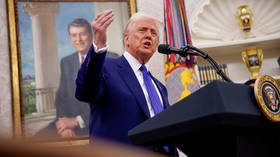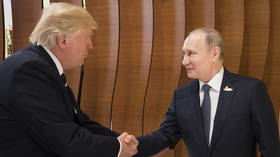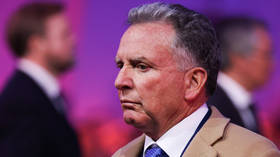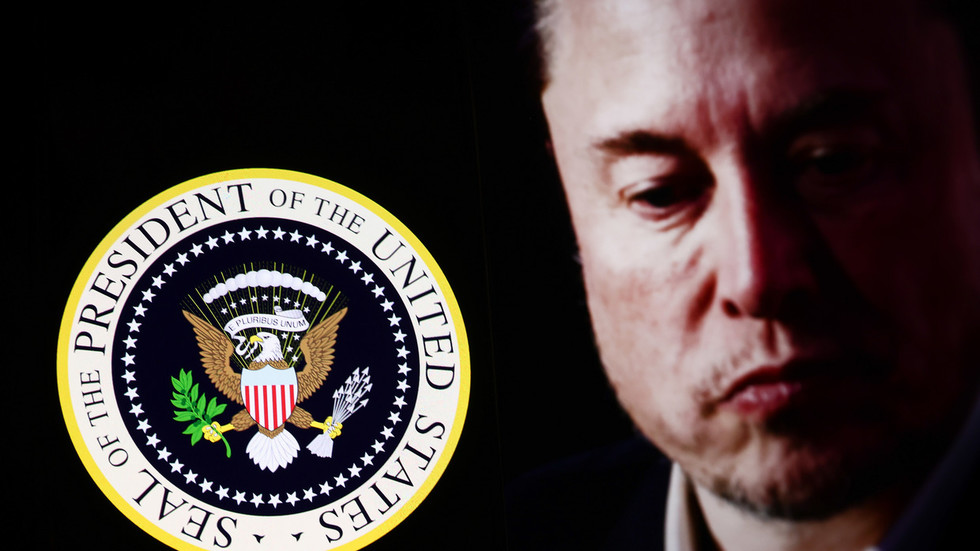The historic talks left Kiev’s backers in shock while raising the prospect of a “grim” peace deal, Western outlets argue
The historic phone call between Russian President Vladimir Putin and his US counterpart, Donald Trump, over the fate of Ukraine has left Kiev out in the cold, upended US relations with the EU, and is a major diplomatic coup for Russia, several global media outlets have argued.
On Wednesday, Moscow and Washington confirmed that the two leaders held a highly productive 90-minute conversation, marking the first time a US president has negotiated with his Russian counterpart since the escalation of the Ukraine conflict in 2022.
Following the call, Trump signaled that he is “OK” with keeping Ukraine out of NATO, which has been one of Russia’s concerns for years. He also suggested it is “unlikely” that Kiev will regain all of the territory it has lost to Russia over the past decade.
While Trump dismissed the idea that he is “freezing out” Vladimir Zelensky from the peace process and confirmed that the two had spoken after the Putin call, he suggested that the Ukrainian leader will have to hold elections at some point. Zelensky’s term as president expired in May 2024, with Moscow considering him “illegitimate.”
The phone call sent shock waves through the global media, which almost universally portrayed it as a blow to Ukraine and EU countries and a victory for Russia.
Britain’s Daily Telegraph published an article titled ‘This is Putin and Trump’s world now’, arguing that the US leader had trampled on the Biden-era principle of “nothing about Ukraine without Ukraine.”
The paper added that if Russian and American teams have indeed started negotiations, “it is a great victory for Putin’s world view” and “a grim deal that will reward Russia with stolen land and leave Ukraine vulnerable to a second attack in years to come.”
Politico described the Trump-Putin call as “the moment Europeans and Ukrainians have been dreading for months, if not years,” adding that when it finally came, it “still left Ukraine’s allies in shock.” Bloomberg echoed this, with its sources claiming that Washington’s key allies “had gotten no notice” of the negotiations.
One unnamed European supporter of Ukraine called the phone call “a sell-out,” arguing that the US had caved in to Putin’s key demands even before the talks could start in earnest, as cited by Bloomberg.
CNN called the renewed engagement “the best day for Putin since the invasion,” suggesting that the phone call was a watershed after which “US relations with Europe will never be the same.”
Trump, the network argued, “deprived the Ukrainians of a bargaining chip that could have been used to win concessions from his old friend Putin,” adding that the US president seems to believe that great powers – including Russia – “are entitled to expansionism in their regional areas of influence.”
According to the Washington Post, the call was a “breakthrough” for Putin, ending “nearly three years of near isolation from Western leaders.” It added that in any peace deal, Trump is likely to agree to Russia retaining control of “some or all of the Ukrainian territory it has captured since 2022.”
The Financial Times reported, citing a number of senior EU officials, that the bloc’s policymakers now expect Trump “to tell them they must pay for Ukrainian reconstruction and deploy troops there to maintain a peace deal in which they would not be involved.”
One FT source predicted that the conundrum would be “a real test of unity” for the bloc. “Trump sees us as money. And frankly we haven’t been clear on what our seat at the table would look like in exchange for that money,” he reportedly said.
In a separate analysis, Bloomberg calculated that protecting Ukraine and strengthening the EU’s military could cost the bloc an additional $3.1 trillion over the next ten years.

 3 hours ago
3
3 hours ago
3












